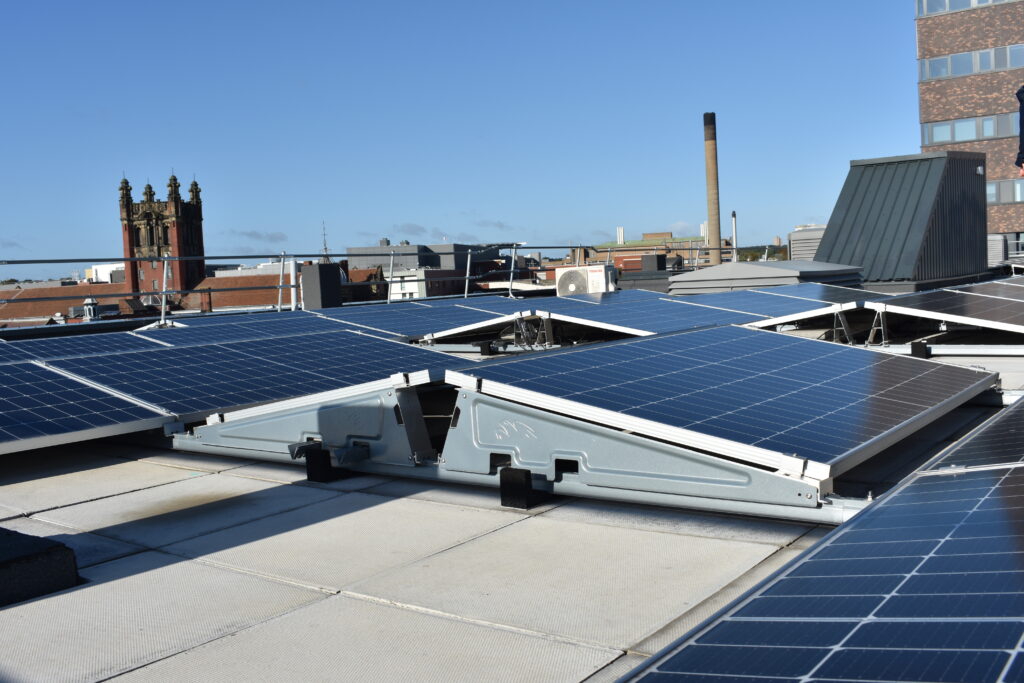Newcastle University aims to be net zero by 2030. Wondering how? Meet the team behind the plan…
The Sustainability Team are based in Newcastle University’s Estates and Facilities department, today, we are a team of eleven, and we are responsible for environmental and energy management whilst driving continual improvement.
Our work also involves collaborating with colleagues throughout the University, engaging with our student body, whilst encouraging best practice and statutory compliance. We work to drive forward climate action in a variety of areas, from biodiversity to energy, water to waste.
Net zero by 2030
Newcastle University has committed, following its Climate Emergency Statement, to net-zero carbon dioxide emissions by 2030. This target (along with others) is outlined in the University’s Climate Action Plan which was created to address the climate crisis and our impact on it.
A range of carbon reduction projects are currently being delivered, that will lower the carbon emissions produced by our organisation once they are completed. You can read more about these projects on our Carbon Reduction Projects page.

Importance of sustainability at Newcastle University
“The greatest threat to our planet is the belief that someone else will save it.” – Robert Swan OBE
Sustainability is the ability to ‘meet the needs of the present without compromising the ability of future generations to meet their own needs’.1 In other words, it is the prominent need to cut resource exploitation to ensure there are sufficient supplies for generations to come.
Adopting a more sustainable way of life is not only essential to the protection of our ecosystems but also to economic growth and social wellbeing. Environmental issues such as climate change, plastic pollution and biodiversity loss have global effects, and most often affect people who are the most vulnerable, the most seriously.
We know that we have to play our part in reducing our greenhouse gas emissions. Our Climate Action Plan and our EMS & EnMS Action Plan both outline actions that we want to take to reduce our negative impact and increase our positive impacts both locally and internationally.
Play Your Part
Do you want to play your part in increasing environmental sustainability at Newcastle University? Take a look at our Sustainable Campus webpage to find out about how colleagues and students can get involved and our upcoming events.
References:
- United Nations Brundtland Commission (1987). Available at: Sustainability – United Nations. (Accessed: 26th October 2022).

